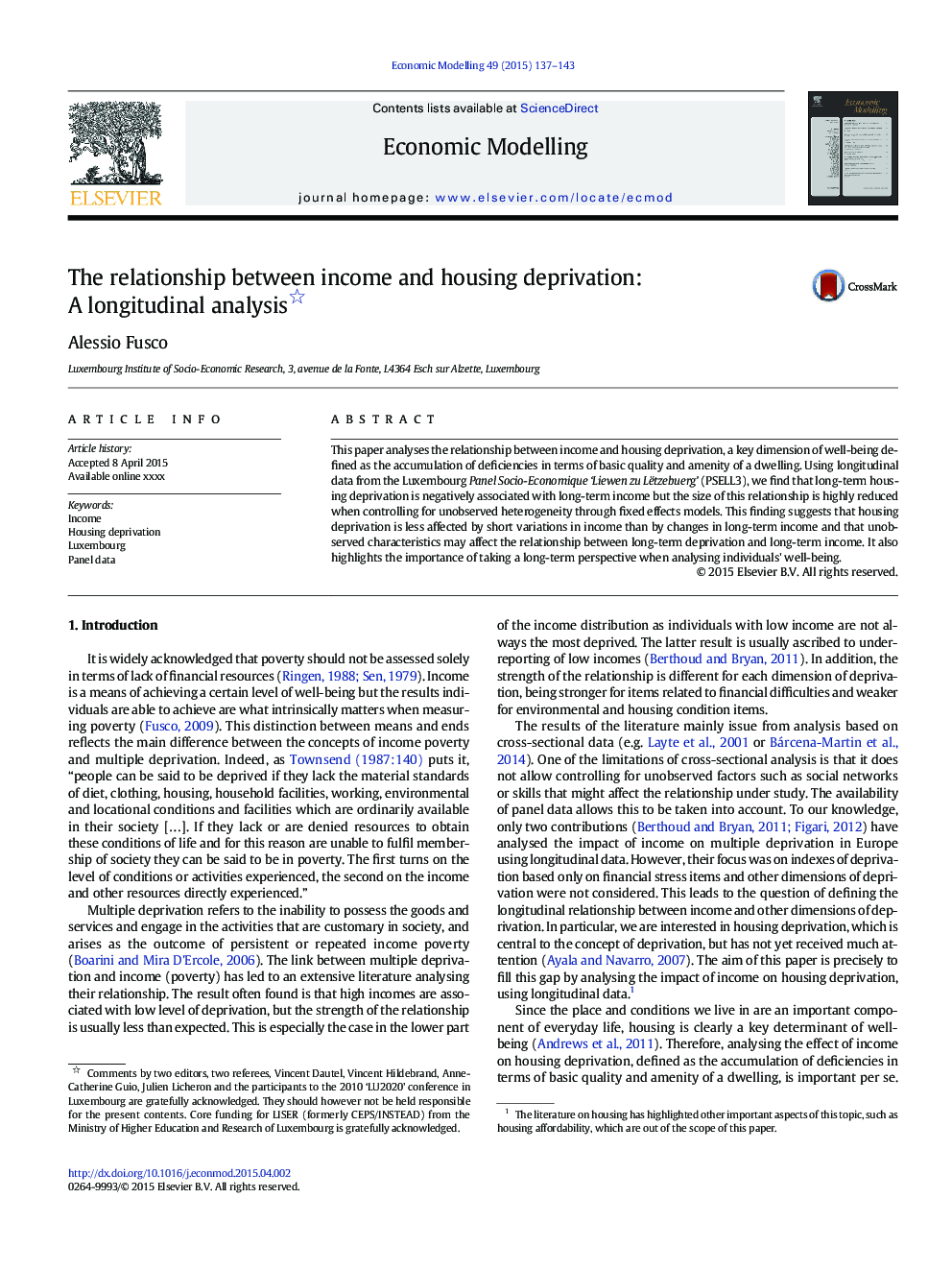| Article ID | Journal | Published Year | Pages | File Type |
|---|---|---|---|---|
| 5053817 | Economic Modelling | 2015 | 7 Pages |
Abstract
This paper analyses the relationship between income and housing deprivation, a key dimension of well-being defined as the accumulation of deficiencies in terms of basic quality and amenity of a dwelling. Using longitudinal data from the Luxembourg Panel Socio-Economique 'Liewen zu Lëtzebuerg' (PSELL3), we find that long-term housing deprivation is negatively associated with long-term income but the size of this relationship is highly reduced when controlling for unobserved heterogeneity through fixed effects models. This finding suggests that housing deprivation is less affected by short variations in income than by changes in long-term income and that unobserved characteristics may affect the relationship between long-term deprivation and long-term income. It also highlights the importance of taking a long-term perspective when analysing individuals' well-being.
Keywords
Related Topics
Social Sciences and Humanities
Economics, Econometrics and Finance
Economics and Econometrics
Authors
Alessio Fusco,
